Stressed? Anxious? Confused? Thrown into a new situation and wondering what the heck is going on? Sam Beckett from Quantum Leap can help.
It happens to all of us, sometimes multiple times a day. We’re bombarded with new and unfamiliar information.
Maybe you missed a deadline at work and were unaware – until irate coworkers brought it to your attention.
Perhaps at work, a client asks a question – and you realize you have no idea what this client is talking about because you haven’t done enough research on a certain topic.
Maybe you’ve come into your home, and your spouse is furious and refusing to talk to you – and you have to quickly play detective and deduce why.
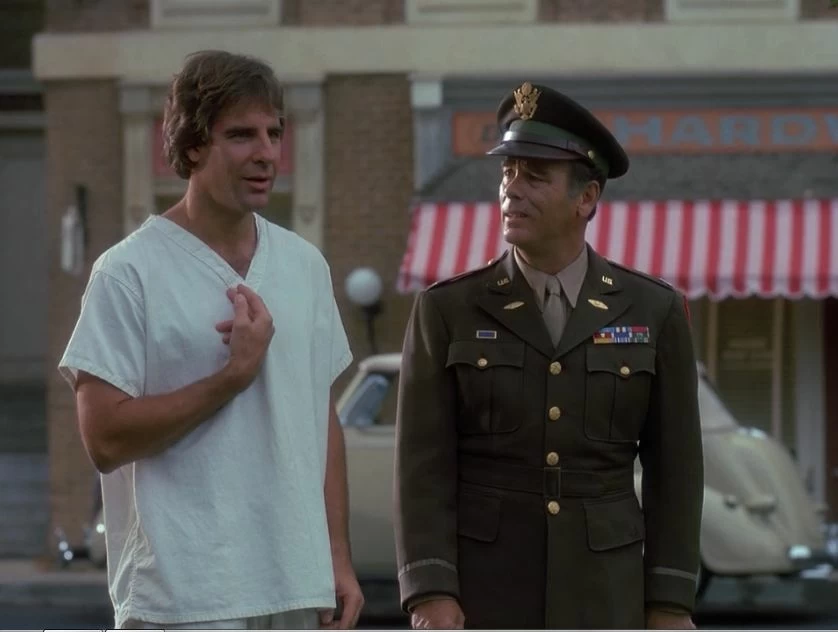
What do you do? How do you react? Well, we could all learn a lot from Sam Beckett, a time traveler and the main character in the 1980s and 1990s TV series Quantum Leap.
As you know if you’ve watched the series, Sam was always in a jam at the beginning and end of each episode, completely out of his element and generally in the middle of some crazy situation.
I’ve re-watched a bunch of episodes of Quantum Leap (1989-1993) -- and Sam had a number of go-to strategies he would employ whenever he had no to little idea what was going on.
They’re all pretty basic life hacks that we've all used from time to time, but still, maybe seeing them all at once will help you the next time you find yourself in the middle of a bewildering conversation.
Today's "TV Lesson" Breakdown:
First, for those who don't know the show, a little about Quantum Leap
Sam Beckett was a time traveler.
He never knew exactly where he was, due to his penchant for traveling through time and winding up in a new person’s body. In fact, he never knew who he was or why something was happening or even what year it was at the start of the episode – but by the end, right before he would leap into another year, he had always managed to improve at least person's life.
Sam had help, as fans of the series know -- his friend Al Calavicci, who would appear in the form of a hologram. Nobody could see Al except Sam, and while the TV audience saw Scott Bakula, the characters in the series saw the person who Sam had leapt into. So if Sam didn't act like the person who's body he had taken, the person's friends and family would find the behavior pretty strange.
Sam could never leap out of the body, until he had helped the person he was there to help. Who he was supposed to aid, Sam never knew at the start of the show. It often wasn't the person whose body he had leapt into. In fact, he sometimes didn't know for sure who he was supposed to help until the end of each episode when he would leap into somebody's else's life, in another year.
Well, the series' opening narration can probably explain it far better than me. Each episode explained the premise this way:
Theorizing that one could time travel within his own lifetime, Dr. Sam Beckett stepped into the Quantum Leap accelerator and vanished... He woke to find himself trapped in the past, facing mirror images that were not his own, and driven by an unknown force to change history for the better. His only guide on this journey is Al, an observer from his own time, who appears in the form of a hologram that only Sam can see and hear. And so Dr. Beckett finds himself leaping from life to life, striving to put right what once went wrong, and hoping each time that his next leap will be the leap home…
Quantum Leap, the opening narration before every episode
Hopefully that helps anybody who doesn't know much about Quantum Leap. And now, let's leap into the strategies Sam used, whenever he needed to get up to speed on things.
A familiar Quantum Leap tactic: Stall
It’s a familiar tactic but an understandable one to try. Confusing things are happening, but exactly what, you can't say, and you need to get information. For instance, when Sam leaps into the body of a defense attorney Leonard Dancey in the episode, “So Help Me God,” he finds himself in a court room.
“We appreciate the dramatic pause, Leonard, but we’re waiting for your answer,” says Judge Eugene Haller.
Sam could have stammered and hemmed and hawed. He could faked a panic attack or had a real one. Instead, he simply asks: “Would you mind repeating the question?”
That simple phrase allows Sam to get his bearings and quickly learn that he defending his client in a murder trial.
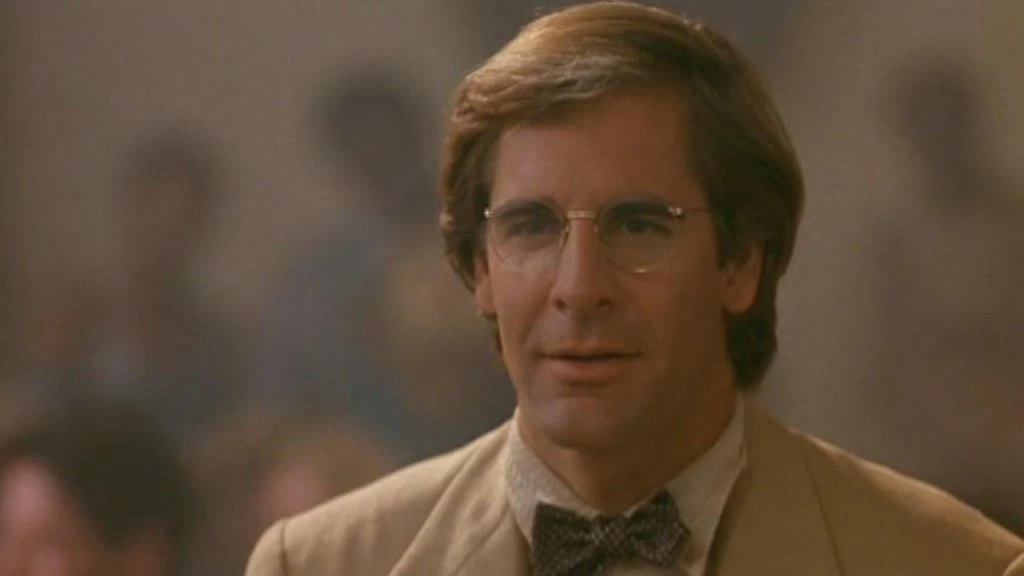
Fake it until you make it
Sam does this in every leap – and it certainly works for him. He doesn’t wig out and tell people that he has no idea what’s going on.
No, Sam Beckett goes with the flow. Obviously, in real life, sometimes it’s best to just come clean and admit that you forgot somebody's name or a birthday or a presentation you were supposed to give at work.
But certainly there are times when it is better to just fake it until you make it.
As Sam tells the audience in a voice over in the episode, “How the Tess Was Won – August 5, 1956, which came early in the series, “Every time I leap, I do this song and dance to find out who I am and where I live. Sometimes... it's hard, and sometimes it's easy.”
After saying that, Sam looks at a mailbox bearing the name of the person he has leapt into: Daniel Young, D.V.M.
He is a veterinarian, an occupation Sam had already figured out. He had leapt into Young at a time when he was in a pig pen, and people wanted to know what was making a piglet sick.
But now Sam knows his name -- well, the name of the person he has leapt into. So that's good. Not that Sam's problems are over, not by a long shot.
As Sam narrates, “Figuring out the names of everyone I'm supposed to know is a little tougher, especially if they're alone.”
Moments later, Sam is greeted by a teenage boy who calls him, “Doc.” Having no idea who he is, and being in Texas, Sam says, “Hi, uh, pard.”
As in, short for pardner.
Sam calls the boy “pard” a couple times before learning the dog’s name is actually Pard, which explains why the youth looks ticked off.
Still, faking it until he makes it is generally a strategy that works out pretty well for Sam – and, of course, he has little choice. Telling people that he is actually a time traveler leaping into people’s bodies is a pretty sure-fire way to get yourself shuttled off to a psychiatric ward.
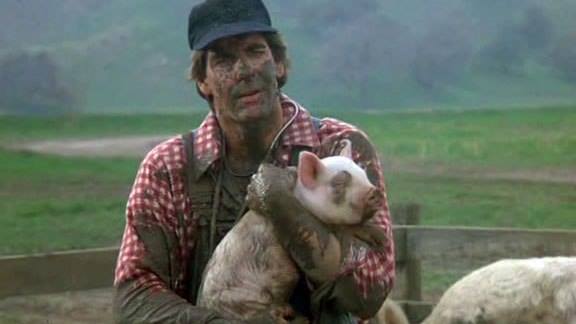
Don’t let your own confusion make things worse
This is really a subset of the “fake it until you make it” rule, but you really can make things worse by being completely honest about your confusion. At least, Sam realized that in "Unchained -- November 2, 1956,” when he leapt into an escaped convict’s body. He starts off the episode chained to another guy named Jasper Boone, in jail for a crime he didn’t commit, and they leap off a truck and start running.
When Sam seems confused about their surroundings, Jasper says, “You said you grew up around here.”
“I did?” Sam asks.
Jasper looks deflated -- and angry. “You… you lied to me, didn’t you?"
“No. I… No, I didn’t lie to you,” Sam says. “I mean, I don’t think I lied to you.”
“What you mean, you don’t think?” Jasper asks.
Sam then has an epiphany that now is not the time to get into an argument, not with lawmen and barking dogs nearby. Sam is more firm and says that he didn’t lie. And then he is able to help Jasper escape. He figures he can figure out later why he's here, and if they should be running from the authorities.
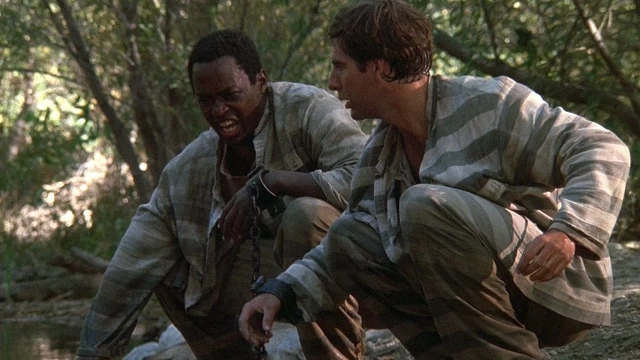
Take a bathroom break
In "Runaway – July 4, 1964," when Sam leaps into the body of a 13-year-old boy with bratty older sister, who is tormenting him in the back seat of their family's car, Sam wisely asks his parents if they can stop the car, so he can use the restroom -- which would allow him to talk to his hologram sidekick, Al, and get his bearings.
Unfortunately, Sam learns that the boy he has just leapt into had just asked to go to the bathroom 10 minutes earlier.
But it was a good idea, and it worked for him at least two other times on the series. Sam leans on the bathroom break crutch when he leaps into the body of Knut “Wild Thing” Wileton, a frat house president in the midst of a frat party. He also does it in “Honeymoon Express – April 27, 1960,” when Sam leaps into a man who is on a train with his new wife.
Ask for additional information
In the episode “Honeymoon Express,” Sam asks a train porter for a newspaper – figuring he’ll get a read on what year it is. He doesn’t end up needing it. His sidekick, Al, appears and brings him up to speed, and just as he is about to read the paper, Sam is interrupted and never gets to sit down with a cup of joe and read about
Alabama governor George Wallace giving a speech condeming the Civil Rights act or about the Viet Cong guerillas attacking an American training camp in South Vietnam or whatever else the paper would have been covering that day.
Still, you get the idea. Asking for information in an innocuous and natural way to try and help you see the big picture is always a good plan.
Change the subject
When Sam leaps into the body of Dr. Ruth Westheimer – yeah, that happens in the fifth season of Quantum Leap, in the episode, “Dr. Ruth – April 25, 1985” – he is being asked sex-related questions on her radio talk show. Sam struggles to answer a query and says, “Could we go to the next caller, please?” He doesn’t fare much better with the next caller – and then requests his sound booth to go to a commercial break.
Most of us may not be on the radio and have the ability to switch to a commercial break, alas, but we can all try to steer the conversation in another direction, so we can buy some time to think and get our bearings. That's what Sam was doing.
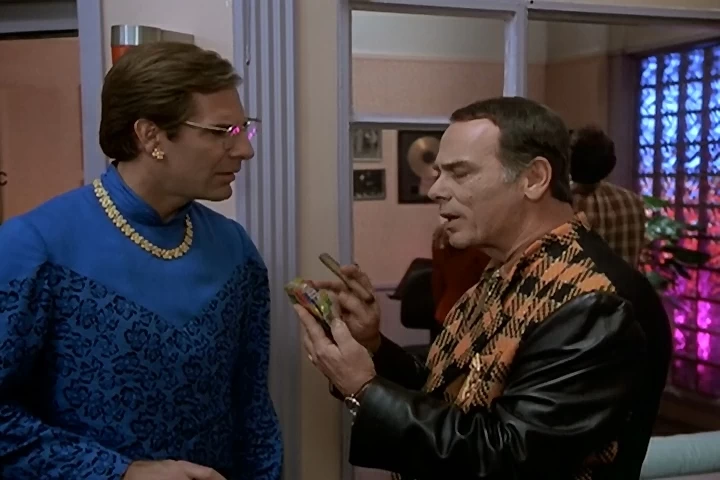
Try to lower the temperature
Not literally. In a confusing and stressful situation, you want to be reasonable and logical – and if you can also take a break from everything at the same time, all the better.
In “Star Light, Star Bright – May 21, 1966,” Sam Beckett leaps into the body of a 79-year-old UFO enthusiast, Max Stoddard, who has been wandering in the woods – and whoever everyone believes is something of a kook. When his grandson and a cop bring him back, the senior citizen’s family is quite wound up.
Wisely, Sam says to his adult son and his daughter-in-law, “Look, I’m -- I’m sorry if I’ve caused any trouble, but maybe if we all got some sleep…”
At first, the son, John Stoddard, won’t have any of that, wanting to talk about his father’s habit of wandering outside at night. But Max’s daughter-in-law sees the wisdom of Sam’s suggestion, and soon the family is all going up to their bedrooms. Crisis averted once again, and Sam can start to learn why he’s there and what the heck is going on.

Finally, keep your cool
It really will pay off. Staying calm under pressure works for Sam, and it can work for all of us. If Quantum Leap teaches us anything – and it can teach us a lot – it’s that life is pretty unpredictable. One minute, you have a handle on everything that’s going on, and the next, you don’t.
We may not all be leaping through time like Sam Beckett and into other people’s bodies, but most of us know the experience of getting thrown into unfamiliar situations. No matter how prepared you are for something, some sort of minor chaos is going to happen.
So when we can, we might as well all exhale and enjoy the journey. And if we're lucky, follow Sam Beckett's lead and try to change somebody else's life for the better.
Where to watch Quantum Leap (at the time of this writing): I know I’ve seen it on other streaming services, but you can find the entire series on NBC.com (strangely, it’s not on NBC’s other website, Peacock.com).
Articles similar to this Quantum Leap one: You might enjoy this look at another TV series that employed time travel – Loki, on Disney Plus, one of the few modern shows that The TV Professor has covered. If you've never seen Loki, you still may want to give the blog post a look-ee. It's all about the TV “acting career” of skyjacker D.B. Cooper.

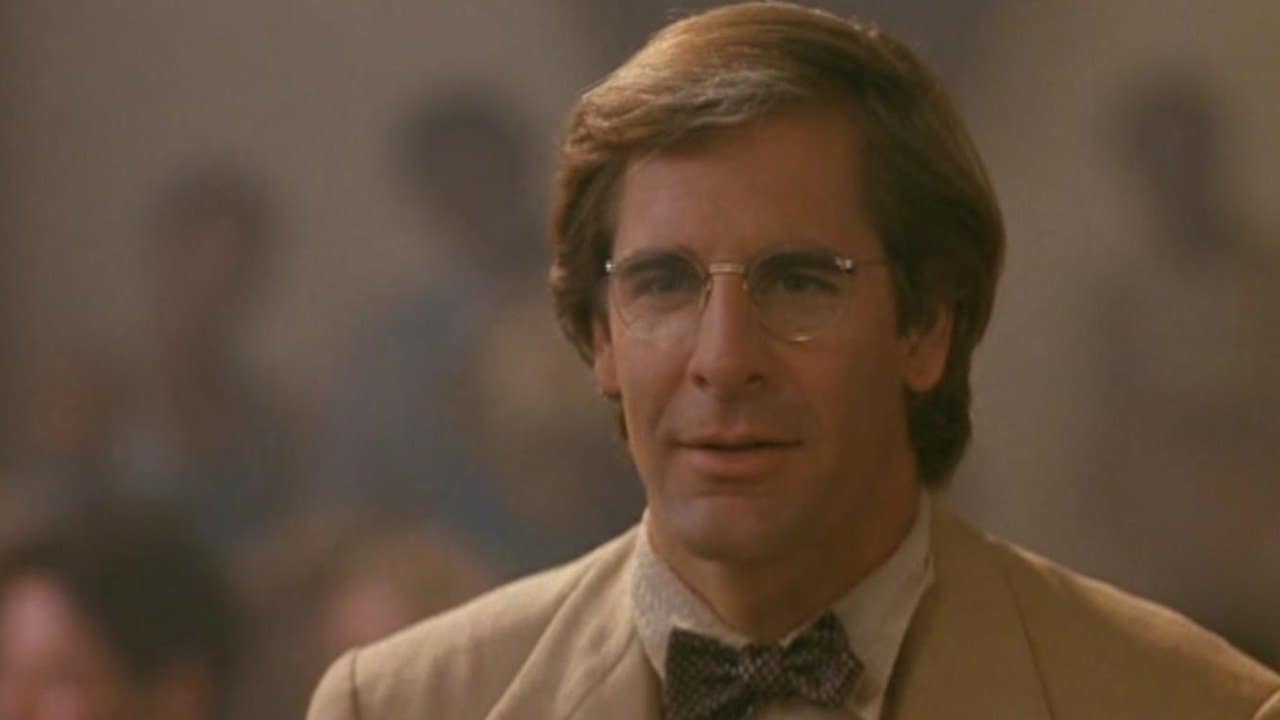
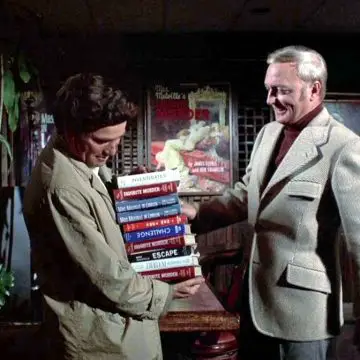
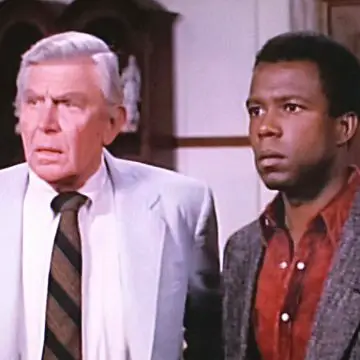
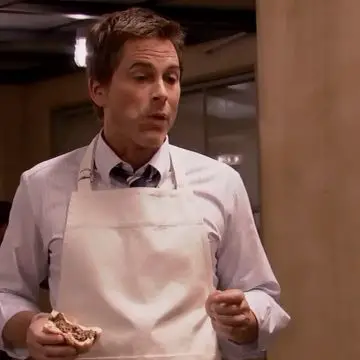

Leave a Reply